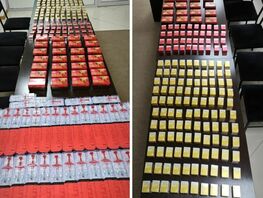The agreements reached during Fijian Prime Minister Sitiveni Rabuka’s visit to India from August 24–26 — covering health, security, climate, trade, and culture — mark a dynamic new era in India-Fiji ties. The Diplomat reports.
The two countries share a history shaped by British colonialism. Between 1879 and 1916, over 60,000 Indians were sent to Fiji as indentured laborers. Today, Indo-Fijians make up 38 percent of Fiji’s population, fostering enduring cultural, economic, and educational ties. India maintains a non-interference stance in Fijian domestic affairs.
Formal relations were established in 1970. Despite modest trade (around $80 million annually), the partnership is strengthened by India’s development aid and capacity-building efforts. Rabuka’s visit reflected continuity in this approach, as well as shared interests in regional integration and global cooperation.
India’s growing role in the Pacific began with Prime Minister Narendra Modi’s 2014 visit to Fiji, the first by an Indian PM in over three decades. That trip launched the Forum for India—Pacific Islands Cooperation (FIPIC), involving 14 nations. India is also a long-time dialogue partner of the Pacific Islands Forum (PIF).
Defense ties expanded during Rabuka’s visit, with agreements on UN peacekeeping, military medicine, cybersecurity, and maritime security. India pledged to send ambulances, open a defense wing in Suva, and set up a cyber training cell.
Healthcare was another focus. India will build a 100-bed super-specialty hospital in Suva, expand telemedicine via the e-Sanjeevani platform, and host a second Jaipur Foot camp. Up to 10 Fijians will receive treatment in Indian hospitals through the «Heal in India» initiative.
A water project MoU was signed under the Quick Impact Scheme. Climate action was also emphasized, with India offering support through the International Solar Alliance (ISA), CDRI, and Global Biofuels Alliance, all of which include Fiji.
In agriculture, India donated drones, soil labs, and cowpea seeds, and offered training in sugar production. Fiji granted market access for Indian ghee. Both nations explored economic diversification and signed a Declaration of Intent for mobility in education and professions.
Cultural and educational exchange remains strong, with a Hindi-Sanskrit teacher posted to the University of Fiji, religious training programs, and planned sports cooperation including a cricket coach.
Fiji showed interest in joining India’s Indo-Pacific Oceans Initiative. Both countries reiterated support for a «free, open, secure, and inclusive Indo-Pacific» and pledged deeper maritime collaboration.
Fiji reaffirmed backing for India’s UN Security Council bid and emphasized mutual interests within Global South and FIPIC frameworks. The partnership has now entered a comprehensive, future-oriented phase focused on sustainable development, regional stability, and people-to-people ties.






